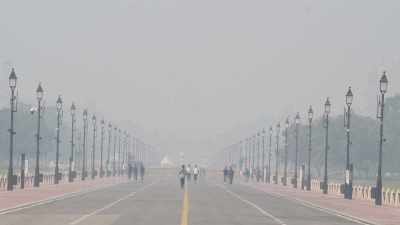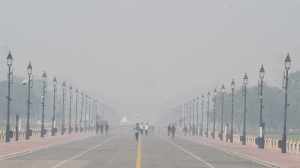She kept coming back to India
My friend Alice Thorner died in Paris on Wednesday. She was 87. Alice had wide contact with four generations of scholars and activists with ...

My friend Alice Thorner died in Paris on Wednesday. She was 87. Alice had wide contact with four generations of scholars and activists with whom she observed, and joined forces to assess, the manifold changes occurring in contemporary India. She will be missed by them.
Although born an American, she was passionate about things Indian, a passion first instilled in 1939, when she met Indian liberal-left students in England where her husband, Daniel, was researching the Indian railway system in the India Office Library. The couple was part of a group of liberal-left intellectuals who looked with hope to India as a site for a new kind of social transformation, neither capitalist nor communist.
She first visited India in ’45. She returned in ’52 when Daniel took a sabbatical to research the agrarian situation. The visit, meant for a year, stretched on till ’60. This was because Daniel was asked to testify against himself and his colleagues by the Senate Investigative Committee, in the McCarthy years. When he refused, he lost his job, fellowship and passport. The couple made India their home till ’60, when they shifted to Paris.
Alice and Daniel were dissenters without ever having ideologically closed minds. This criticality fuelled all their work, including Daniel’s masterpiece, Land and Labour in India. Those eight years of self-exile in Bombay were for Alice the most joyous and creative years of her life. Singly and together with her husband, she researched many aspects of Indian society and created concepts and theories in the arena of demography, agricultural economics and urban and industrial development.
After Daniel’s death in ’74, Alice began coming to India every year for at least three months. She collaborated with social scientists and was affiliated to many Indian research institutes. At this stage, Alice started a new life, as a single woman and professional. She set out to study urban processes in India and participate with other women scholars in understanding the gender question. Earlier she and Daniel had been closely associated with the Economic Weekly, later called the Economic and Political Weekly (EPW). Now she urged the EPW editor to initiate a special thematic section on Women’s Studies. This marked a threshold in the growth of women’s studies in India.
In early ’90, Alice approached me to organise a conference on Bombay. She wanted to understand how communities constructed it in the 19th and 20th centuries and gave it a modern, secular identity. This conference was held in the interregnum between the two phases of violence in 1992-3 which saw a pogrom against Bombay’s Muslims. The two volumes from the conference, Bombay Metaphor of Modern India and Bombay Mosaic of Modern Culture reflected these concerns. As a historian, she was essentially an optimist. As a humanist, she found the rise of forces of Hindutva disturbing.
For the last 15 years, Alice and I collaborated on many issues. Over time, we became intimate friends. She will always remain a role model for many of us: a competent professional, a compassionate thinker, who believed in a social change that brings equality and wellbeing.
The writer is professor of sociology, University of Pune





- 01
- 02
- 03
- 04
- 05


























